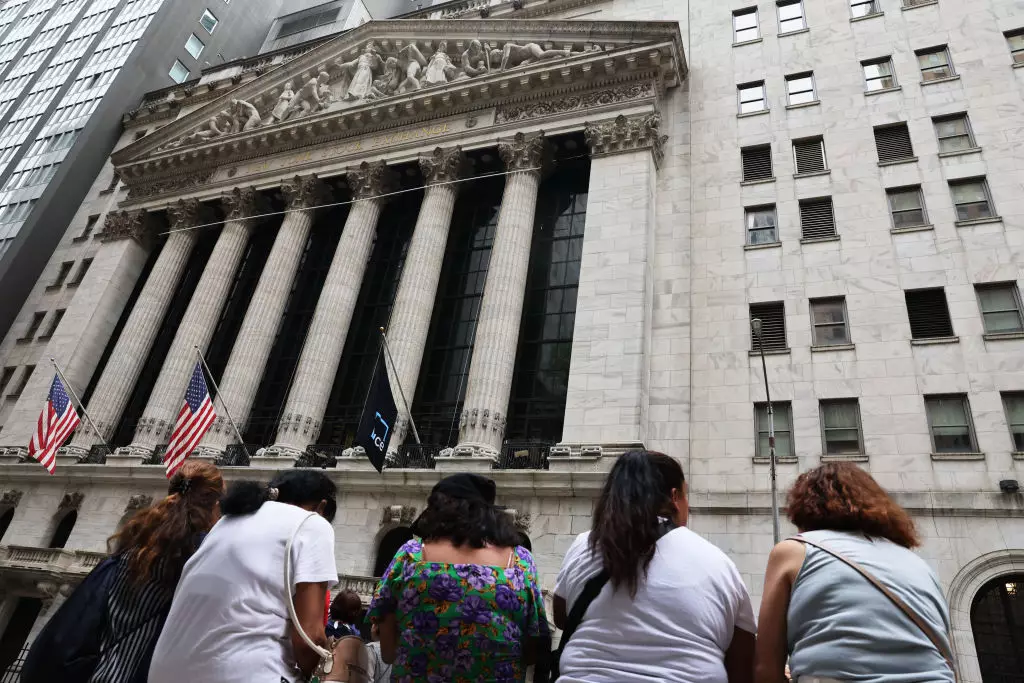The prolonged strike by writers in the entertainment industry has finally come to an end with the announcement of a tentative deal with studios. However, despite the initial optimism, big media shares experienced a downward trend after an initial rise in pre-market trade. This article will critically analyze the current situation in Hollywood, examining the potential impact of the strike’s resolution, the market jitters over inflation and a potential government shutdown, and the contrasting performance of Netflix and exhibitors.
Following the news of the tentative agreement, big media shares initially rose in pre-market trade but opened lower at the bell and continued to trend downwards throughout the day. This unexpected decline can be attributed to renewed market jitters over inflation, interest rates, and the possibility of a government shutdown. These concerns seemed to have offset the relief that Hollywood is finally back in business, or at least much closer to returning to normalcy. Wall Street’s sentiment towards the dual strikes by actors and writers has been mixed, with CEOs facing little pushback from investors during the first set of earnings calls but experiencing slightly more concern in August when the fall television season was disrupted and movie release dates were forced to shift.
Financial Impact and Future Prospects
Shuttered production during the strikes led to significantly lower costs for big media companies, which were already facing ongoing losses in streaming. Consequently, there has been a dire need for cash to pay down debt. Warner Bros. Discovery anticipated a potential hit of up to $500 million to earnings from the strike, coupled with a wave of free cash flow. However, the exact financial impact of the new deal remains unclear, as the details are yet to be made public. While the Writers Guild of America (WGA) leadership hailed the agreement as “exceptional” with significant gains and protections for writers in all sectors, the effects on corporate financials are still to be determined.
The WGA deal, although significant, is still just the first step towards resolving the strikes. The SAG-AFTRA strike, involving actors, is still ongoing. However, there is an expectation that the writers’ deal will pave the way for a settlement with the actors. Late-night talk and comedy shows will be the first to return, as they were not among the productions affected by the strikes. Additionally, scripted production could potentially get back on track before the end of October if negotiations with SAG-AFTRA are settled expeditiously. While an October settlement would still cause disruptions to the planned 2024 TV and film output, it would be on a much lesser scale than if the strike had continued throughout the fourth quarter.
Despite the resolution of the strikes, the entertainment industry still faces numerous challenges. These range from weak advertising revenues to evolving direct-to-consumer (DTC) strategies. Media stocks, which have not been performing exceptionally well, initially saw some gains in early trading before relinquishing most of them. Warner Bros. Discovery experienced a substantial 2.5% decline, while Disney, Comcast, and Paramount were all down but by less than 1%. In contrast, Netflix witnessed a slight increase of over 1%. On the other hand, exhibitor stocks such as AMC Entertainment, Cinemark, and Marcus all experienced significant gains. Theatrical release schedules and box office grosses were impacted as the strike caused delays and hindered promotions by actors. The longer the strike continued, the more it endangered the number of studio films in the pipeline for upcoming years.
While the tentative agreement between the writers and studios marks a significant milestone in ending the strikes, the market reaction has been rather mixed. Concerns over inflation, interest rates, and a potential government shutdown have overshadowed the relief of Hollywood’s return to normalcy. Nevertheless, the future prospects for the industry seem promising, with the expectation that the writers’ deal will lead to a settlement with the actors as well. The industry still faces challenges, including weak advertising revenues and evolving DTC strategies. It remains to be seen how these factors will shape the future of Hollywood and whether the resolution of the strikes will bring lasting stability to the entertainment industry.

